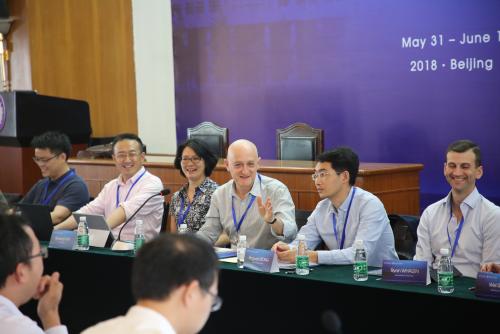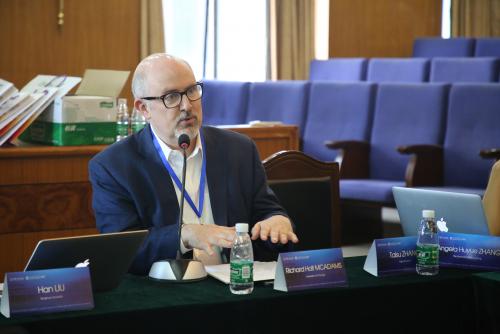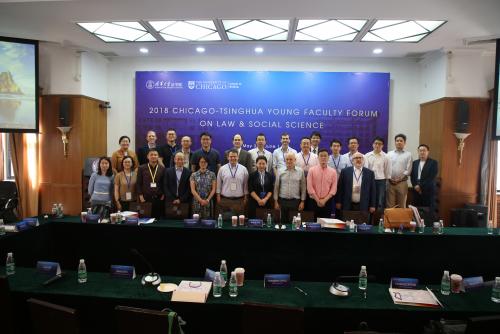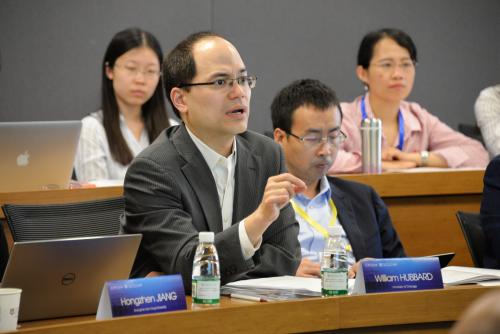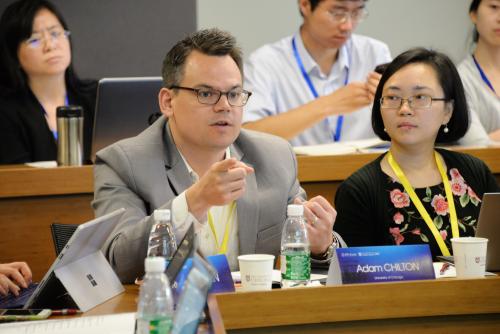Law School Faculty Collaborate on Chicago-Tsinghua Junior Faculty Forum
The University of Chicago Center in Beijing served as the host for the first day of the inaugural Chicago-Tsinghua Young Faculty Forum on May 31. 12 promising young scholars from throughout China presented their research-in-progress on various topics at the intersection of law and social science to a room of eminent legal scholars.
As implied by the event’s title, the conference was the result of a partnership between the University of Chicago and Tsinghua University, wherein the particular needs of each school led to the desire for such a collaborative summit on innovative methods in legal research.
In his opening remarks, Professor Weixing Shen, Dean of Tsinghua University School of Law, gave a brief introduction to the history of Tsinghua University School of Law, emphasizing the school's unique position as a relatively young department. While the former Tsinghua University School of Law was founded in 1929, the School of Law as it exists today was only established in 1995. Professor Shen sees this as an advantage in some respects, and his desire to capitalize on this advantage was one motivation in arranging this conference. Tsinghua University School of Law, he argued, is now established enough to attract high-level talent, but young enough to chart its own course and teach students in a more dynamic fashion than traditional law schools of the past. He cited a desire to develop specializations in areas such as data protection law, and to shift the school’s teaching and research methodology to be more evidence-based than precedence-based.
The latter desire, to steer legal research out of the realm of precedence and into the realm of investigation, is where the desire for this forum originated. To further develop this method of evidence-based questioning, organizers from Tsinghua looked to their colleagues at the University of Chicago. Tasked with providing participants with the chance to immerse themselves in the University of Chicago method of rigorous inquiry, Professor Omri Ben-Shahar, Leo and Eileen Herzel Professor of Law and Kearney Director of the Coase-Sandor Institute for Law and Economics at the University of Chicago emphasized the value of “unlearning” the restrictions of disciplinary boundaries. Echoing Professor Shen’s remarks, he emphasized the value of providing criticism from many perspectives, rather than relying on established thought patterns, to produce research that better responds to today’s world. Regarding his own motivations for establishing this forum, Professor Ben-Shahar expressed his hope that it would allow participants to come together and “create something of value that, without our collaboration, would not exist.” Three other professors from UChicago Law School joined Dr. Ben-Shahar for the forum. They are Dr. Adam Chilton, Assistant Professor of Law and Walter Mander Research Scholar, Dr. William Hubbard, Professor of Law, and Dr. Richard McAdams, Bernard Meltzer Professor of Law.
For more information on the forum, its participants, and the papers presented, please visit the Center in Beijing website.
Read more at the original publication
